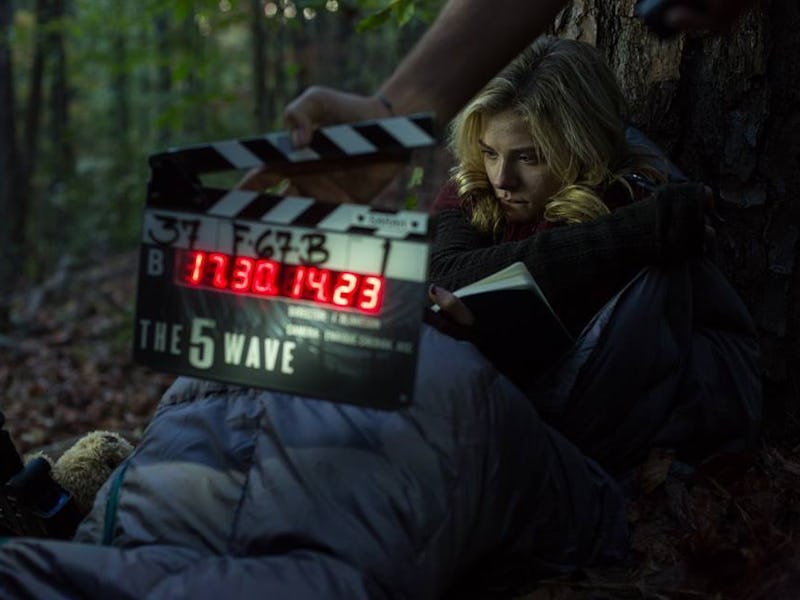'The 5th Wave' Isn’t Just a Sci Fi Movie, It’s a Terrifying and Real Concept
Chloë Grace Moretz to illustrate an actual theory of modern terrorism in her January YA film.

The trailer for Chloë Grace Moretz’s new film, The 5th Wave, based on the young adult novel of the same name, makes waves 1 through 4 of the alien invasion sound like biblical plagues. The film, and the earlier novel, borrow their name from a scholarly concept of international terrorism, though it’s unclear how closely the 2016 film will adhere to these concepts.
“The first wave,” the film’s heroine Cassie (Moretz) explains in voiceover, “knocked out all the power.” “Then, the second wave hit: an earthquake strong enough to shake the entire planet.” It looks like wave 3 is disease, and wave 4 is the physical presence of aliens, who “inhabit human hosts”, body-snatcher style. The 5th wave? Unclear.
According to David Rapoport’s concept of fifth wave terrorism, the act of terror has existed since 1880, and has evolved over time. Rapoport organized these collective changes in terrorism and called them: anarchist, anticolonialist, New-Left, and religious. Given that each wave of terrorism has lasted, according to Rapoport, around forty years, we’re due for a fifth wave in 2025.
Some have outlined ideal characteristics for terrorists subscribing to a fifth wave mentality, including: radical thought and a departure from existing terror groups, withdrawal into under-inhabited wilderness areas, a quest for racial, tribal, or ecological purity, internal violence within the group, using rape as a signature tactic, charismatic leaders, and religious or apocalyptic leanings. Fifth wave terror groups, according to Rapoport’s theory, place special meaning on women and children, training the latter as weapons. It is worth noting here that ISIL trains child soldiers, which the group calls “lion cubs”. ISIL uses social media to recruit younger members, and has used the promise of hard-to-find toys or candy, including Kinder eggs, in its marketing materials.
What does this mean for the film? Well, a quick shot in the trailer shows Cassie’s little brother sitting on a bunk bed in uniform, presumably at some kind of militant training camp or holding facility. We know that the plot of the film revolves around Cassie’s attempts to retrieve her little brother from alien capture. It seems that although waves 1-4 in the movie are not the same as Rapoport’s, the film may define the fifth wave the same way Rapoport does: as a group seeking purity by training the younger generation.
Rapoport believed that most researchers were mistaken to focus on terrorist groups and individual attacks, rather than the psychological explanations behind larger movements. He thought studying the human lifespan in relation to terrorist movements gave us a more clear look at what motivated groups such as the IRA, the Viet Cong, and Al Qaeda.
Maybe it makes sense that The 5th Wave is a film based on a young adult novel, since Rapoport’s predicted fifth wave will supposedly effect people who are only children and teenagers today. The 5th Wave, ironically, feels like the billionth young adult dystopian story to emerge in the last few years; however, the American adolescent’s fascination with destruction and societal upheaval might be a serious concept, even beyond the box office. What does it say about the concerns of today’s youth that stories of forced violence (The Hunger Games) and social control (Divergent) have so much power?
The 5th Wave will further concepts already explored in The Hunger Games, namely the militarization of children for a larger, political purpose. Tying its story to a real theory of terrorism will either make the film more socially relevant, or The 5th Wave will end up tone-deaf in the face of real threats. Either way, it is a step back from dystopian worlds, setting a teenage heroine’s adventure in a more realistic environment.